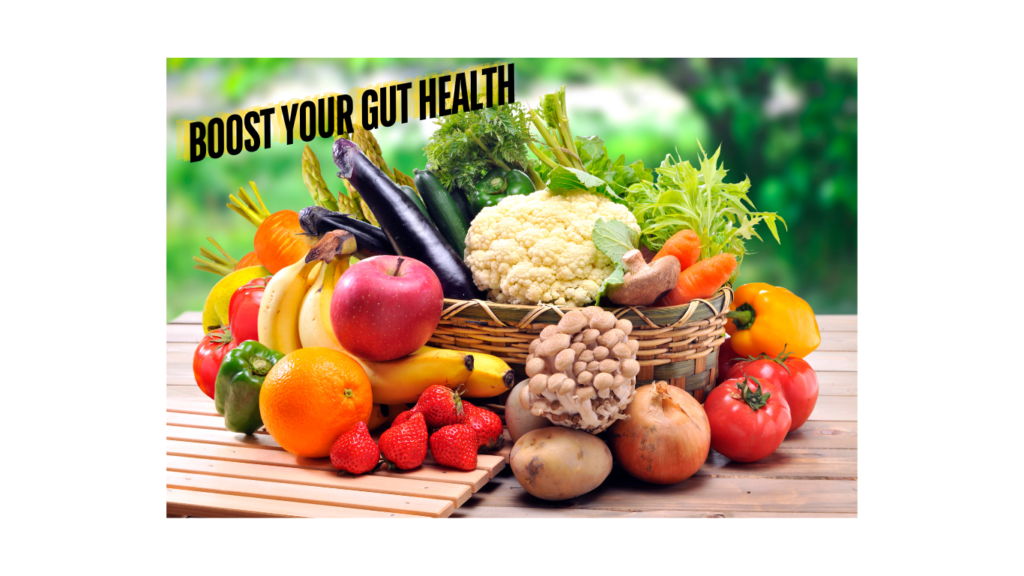
In recent years, there’s been a growing awareness of the importance of gut health and its impact on our overall well-being. From digestion to immunity and even mental health, the gut plays a crucial role in keeping us healthy. But did you know that the way we grow our food can significantly influence the health of our gut?
At Gut Friendly Gardening, we believe that the key to a healthier gut lies not only in what you eat but also in how your food is grown. Let’s explore how gardening, particularly with gut health in mind, can bring transformative benefits to your well-being.
1. Fresh, Nutrient-Dense Produce
When you grow your own vegetables, herbs, and fruits, you have complete control over what goes into your soil and, consequently, your food. By practicing diverse planting and avoiding synthetic chemicals, you can cultivate nutrient-dense produce that supports a healthy gut microbiome. Freshly harvested fruits and vegetables are packed with vitamins, minerals, and phytonutrients that nourish your body and promote optimal gut function.
2. Encourages a Diverse Diet
One of the cornerstones of good gut health is dietary diversity. Eating a wide variety of plant foods helps to support a diverse gut microbiome, which is associated with better digestion, stronger immunity, and even improved mental clarity. Gardening allows you to experiment with different crops and encourages you to incorporate a broader range of vegetables, herbs, and fruits into your diet.
3. Reduces Exposure to Harmful Chemicals
Many conventionally grown crops are treated with pesticides, herbicides, and synthetic fertilizers that can negatively impact gut health. These chemicals can disrupt the balance of your gut microbiome, leading to digestive issues and other health concerns. By growing your own food organically, you eliminate the need for these harmful substances, providing you and your family with cleaner, healthier food.
4. Fosters a Connection with Nature
Gardening is more than just growing food; it’s about fostering a connection with the natural world. This connection can have profound effects on your mental and emotional well-being, reducing stress and promoting a sense of peace and fulfillment. When you’re less stressed, your gut is happier too—stress is known to disrupt gut health, so gardening can help in maintaining a balanced microbiome.
5. Supports Environmental Sustainability
By adopting sustainable gardening practices, you’re not only benefiting your gut but also the planet. Methods such as composting, mulching, and planting a diverse array of crops help improve soil health, reduce carbon footprints, and support local ecosystems. Healthy soil is teeming with microbes that, when transferred to your gut through the food you eat, can bolster your gut microbiome.
6. Physical Activity with a Purpose
Gardening is a form of physical exercise that engages your entire body. Whether you’re digging, planting, weeding, or harvesting, these activities help keep you physically fit. Exercise, in turn, supports healthy digestion and regular bowel movements, both of which are essential for maintaining a healthy gut.
7. Teaches Patience and Mindfulness
In a world where instant gratification is the norm, gardening teaches patience and mindfulness. Watching your garden grow and evolve over time reminds you to slow down and enjoy the process. This mindfulness extends to your eating habits, helping you make more conscious food choices that benefit your gut health.
Conclusion
Gardening is a rewarding hobby that offers numerous benefits for your gut health and overall well-being. By growing your own food, you’re taking a proactive step towards a healthier, happier gut. At Gut Friendly Gardening, we’re here to support you on this journey, offering tips, resources, and courses to help you cultivate a garden that nourishes both your body and the environment.
Are you ready to start growing your own gut-friendly garden? Explore our free resources and courses to learn how you can get started today!
